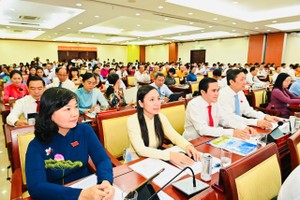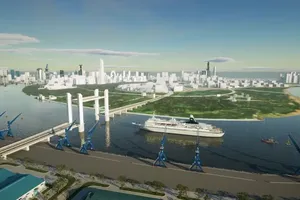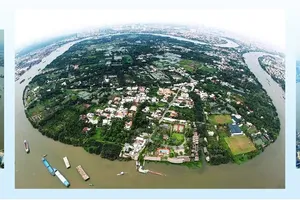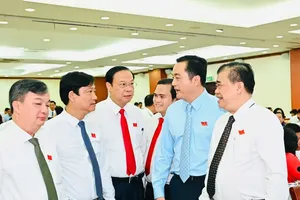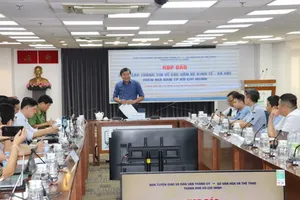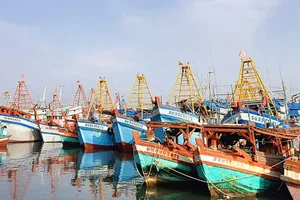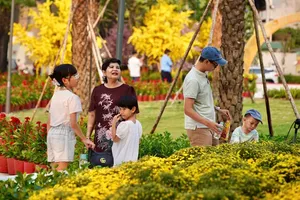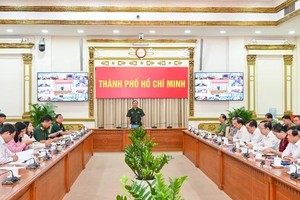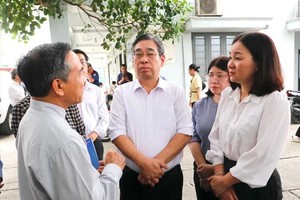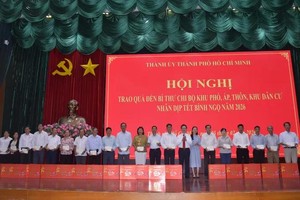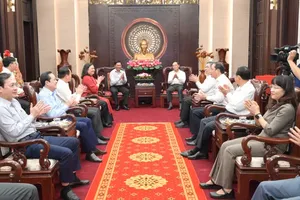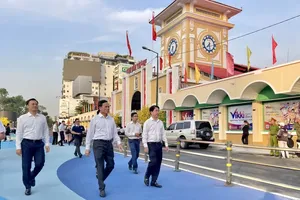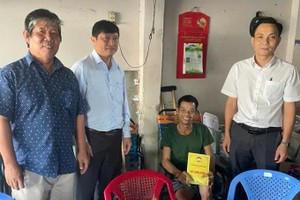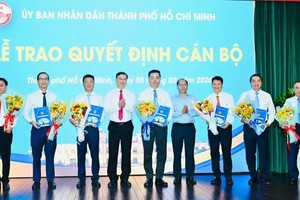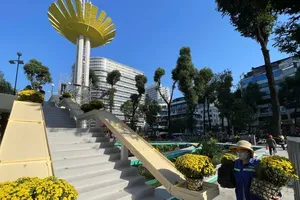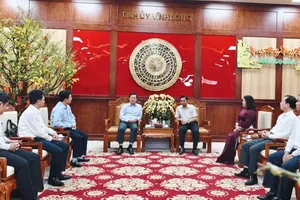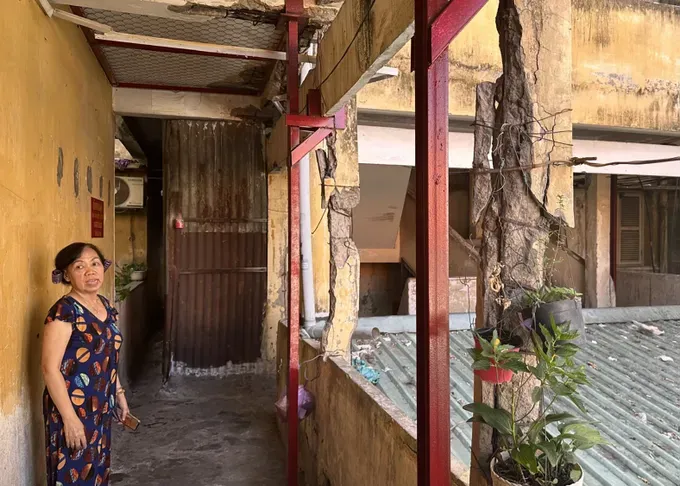
For residents of the Pham The Hien Apartment Complex in Chanh Hung Ward, one of 474 buildings erected before 1975, the city’s plan can’t come soon enough. The structure has been in a state of severe decay for years and is no longer considered safe. An on-site inspection revealed extensive damage. Rebar juts out from cracked staircases, support columns in some areas have been stripped down to their rusted steel frames, and walls peel away in large patches.
“For years, we’ve had to live in constant fear of concrete falling on our heads,” shared Nguyen Kim Lan, a long-time resident of Block C. “Now that we’re in the rainy season, it’s even more miserable. We’re terrified that strong winds will cause a collapse, and rainwater constantly seeps through the ceilings, flooding the corridors and our homes. It’s a wretched way to live, but we can’t go anywhere else because the local authorities haven’t presented a concrete compensation plan yet.”
In response to these concerns, Chairman Pham Quang Tu of the Chanh Hung Ward People’s Committee confirmed that the three-block, 448-unit complex has long exceeded its operational lifespan. He stated that the ward has notified residents of the danger and has performed minor repairs.
“The relocation of these 448 households is part of a larger compensation, resettlement, and urban renewal project for the southern bank of the Kenh Doi area, scheduled for implementation between 2027 and 2032,” Chairman Pham Quang Tu explained. He added that the relocation and compensation process itself is expected to be completed by November 2026.
It’s a similar story at the Vinh Hoi Apartment Complex in Khanh Hoi Ward. Also built before 1975, the 244-unit complex was given a “Grade D” inspection rating, which means the highest level of danger, back in 2017. Although a relocation plan was drafted in late 2019, it remains incomplete.
Today, the building is in a perilous state, with chunks of concrete regularly breaking loose and crashing onto the tin roofs below. For N.V.H., a ground-floor resident in Block C, the situation is unbearable. “Pieces of the wall and concrete are constantly falling down,” he lamented. “It keeps us up at night, just worrying that the whole thing will come down.” Ward officials report they are trying to move residents to temporary housing but are facing resistance from some households who have yet to accept the terms.
According to Chairman Le Hoang Chau of the HCMC Real Estate Association (HoREA), the 2023 Housing Law has provided foundational solutions for the issue. However, he noted that significant obstacles remain in the form of cumbersome regulations and administrative red tape.
“The costs of compensation, site clearance, and construction are already enormous,” Chairman Le Hoang Chau explained. “When you add lengthy, drawn-out procedures to the mix, investors simply get discouraged.”
To break this gridlock, the Chairman urged the city to consider adjusting zoning regulations for these projects. His specific recommendations include increasing the floor area ratio (FAR), raising maximum height limits, and revisiting population density caps to make the projects more financially viable. He believes that allowing for an increased number of units in the new buildings is a key solution to attract investment.
“HCMC is now rolling out Resolution 17/2025, which offers new incentives,” he said, expressing optimism. “This new mechanism should address one of the biggest bottlenecks, namely investment capital, and hopefully bring more serious investors to the table.”
At a recent meeting on the situation of implementing the renovation and reconstruction of old apartment buildings, HCMC People’s Committee Vice Chairman Bui Xuan Cuong assigned the municipal Department of Construction to lead and coordinate with relevant agencies and units to review the legal regulations on renovating and rebuilding old apartment buildings, and advise on adjusting and supplementing the project implementation plan.
Simultaneously, he requested this department to compile a list of apartment buildings needing inspection and submit it to the HCMC People’s Committee for consideration and decision; urgently send a document to the People’s Committees of wards, communes, and special zones providing unified guidance on estimating the cost of apartment inspections; and coordinate with relevant departments and the People’s Committees of wards, communes, and special zones to review and prioritize the repair of apartment buildings, ensuring the safety of people’s lives and property.
Deputy Head Vu Anh Dung of the Urban Development Office under the HCMC Department of Construction elaborated on the new policy. He explained that under Resolution 17/2025, any investor whose project is approved after August 4, 2025, will be eligible for the new incentives.
“Resolution 17 is an additional support policy designed to encourage more investors to take on these challenging but crucial projects,” Deputy Head Vu Anh Dung shared. “Furthermore, thanks to direct guidance from the city’s leadership, most of the legal knots tied to these old apartment projects have now been untangled, clearing the way for investors to get the ball rolling.”
